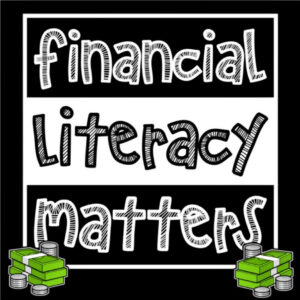
Financial literacy is a part of our everyday lives. Whether we spend too much or too little, the knowledge behind it and learning how to manage our spending habits is what will keep us well above water.
According to Seth Clark, vice president and senior portfolio manager at Capital City Trust Company, financial literacy should start with parents teaching their children when they come of age.
“What most young adults fail to understand is that financial mistakes can stick with you for a long period of time,” Clark said. “For example, the next 5-7 years can be messed up for not paying off small bills and without having the proper knowledge, most will be in financial trouble before they even know it.”
Clark said that many parents don’t talk too much about this topic because they’re too busy trying to keep the family above water. Especially when it comes to credit, because 30 years ago credit didn’t even exist and low- and moderate-income families couldn’t even receive banking services until President Jimmy Carter signed the Community Reinvestment Act on Oct. 12, 1977. So many parents don’t have the knowledge themselves to share it with their children.
This is why there is a great deal of first-generation college students who go off to college and learn everything their parents didn’t, especially pertaining to financial literacy.
Credit card delinquency rates are on the rise among young Americans, according to cnbc.com.
The Federal Reserve Bank of New York found that within the first quarter of 2019, more than 8 percent of balances were held between the ages 18-29 and that they hit serious delinquent territory. This means they were at least 90 days overdue with no payment.
For most college students, when they receive their refund from FAFSA, the entire amount is gone in two weeks. According to financialavenue.org, students should only accept what they need and prioritize the funding on critical needs, including books and supplies, transportation and living expenses. Students don’t comprehend that it’s not free money if interest and repayment are attached. What you borrow you will have to pay back in due time.
Clark had a few suggestions on how to manage credit and money in general.
Use credit on a limited basis
Use credit for small things that you know you can pay back with no problem by the end of the month. This includes using your credit card for things like gas or movie tickets.
Live beneath your means
If you know you don’t need it, then don’t buy it. Over spending can become a habit and before you know it you’re trying to dig yourself out of a hole that’s too deep.
Save
Make a habit of putting money to the side on a consistent basis. It’s easy to save but even harder to do it on a monthly basis. Practice putting money to the side on a monthly basis and in a couple of years you will enjoy the fruits of your labor.